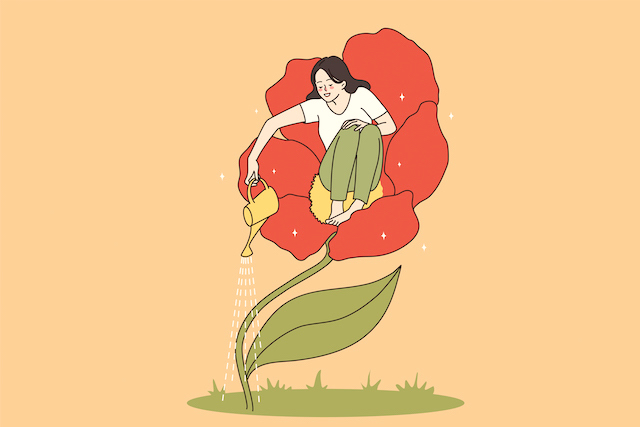How Deepen Your Sleep With Light, From The Psychiatrist Who Coined SAD
Plus, how keeping a dream journal has transformed his sleep (and waking life).

Graphic by mbg creative x FH / Pexels We carefully vet all products and services featured on mindbodygreen using our Our selections are never influenced by the commissions earned from our links. Our sleep series, The Wind Down, provides a minute-by-minute peek into the wind-down routines that get well-being experts ready for bed. Today, we're relaxing with Norman E. Rosenthal, MD, a psychiatrist who first described Seasonal Affective Disorder & pioneered light therapy. Just as a good day begins with a good night’s sleep, the reverse is also true. Throughout the day, I try to do things that are going to be conducive to a relaxed night. This includes exercising (usually 1 to 2 hours per day), meditating (once or twice per day), avoiding coffee and caffeine after noon, and not eating for 3-4 hours before bedtime. I realize, not just from my knowledge of physiology and inspection of my Oura ring results but also from the experience of sleep itself, that sleep is a multi-faceted, multi-layered process. I try to experience and enjoy all the stages of sleep, not just REM sleep, with its vivid dreams, and deep sleep, with its blissful unconsciousness. At times, I keep a notebook by my bedside and write down my dreams as soon as I wake up—before they have dissolved into my waking consciousness. Usually, I'll focus on my dreams when tumultuous things are going on in my life. Then, often, my dreams act as warnings, helping to guide me into making the right decisions. Sleep, therefore, never feels like "wasted" time—it's always an equal player in my 24-hour day. My best night’s sleep happens after a good, active day that leaves me tired. The biggest barrier to a solid night’s sleep is when I break the rules listed above. For example, when I drink coffee after 2:00 p.m. The tools I use to get a good night’s sleep are derived from things I have read, such as keeping the bedroom cool and dark like a cave, maintaining adequate air humidity with the help of humidifiers, and using a good mattress and pillows that feel comfortable. Over the years, I have come to respect sleep more and more. When I was younger, I often regarded sleep as a nuisance. I would deprive myself of sleep, fooling myself into thinking that I would get more out of my days that way. The opposite was true. My work as a psychiatrist and researcher has taught me the crucial values of sleep. Now that I am in the third act of my life, I have come to value the power of sleep and enjoy the dividends of a good night’s rest. These days, I never resent the time I need to spend asleep. I embrace it. 9:30 p.m.: Make sure that I dim the lights in the living areas and bedroom to help me begin to wind down. 9:45 p.m.: Begin habits that I associate with winding down, such as flossing teeth. I do these actions mindfully so that they become more than these necessary chores, but rather deliberate cues to help wind down my active brain systems and set the tone for the night. 10:00 p.m.: Sample a favorite series, especially one with engaging and interesting characters, such as The Danish series, Seaside Hotel, which entertained me for many evenings. I avoid late-night news, with explosions, disasters etc. I also avoid programs that feature unlikeable characters, such as Succession! I finish off puzzles left over from the day, like Wordle and Spelling Bee, which engage the mind but are essentially meaningless. This is also when I'll touch base with family and friends 10:15 p.m.: Take medicines and check my calendar for the next day. This may seem counterintuitive, but it helps settle me down by making me feel more comfortable about the next day, particularly when my first appointment will be. 10:30 p.m. Brush teeth, apply moisturizer (generic Jojoba oil, EyeMax® AlphaRet®), weigh myself. 10:45 p.m.: Say goodnight to my wife and other loved ones. 11:00 p.m.: Get into bed with a book or magazine, and brighten the bedside lamp so that it is bright enough to enable me to read. Put on Oura ring. 11:15 p.m. Feel too sleepy to keep on reading, turn off lights. 11:30 p.m.: Try to put aside worries and allow my mind to drift to pleasant thoughts about the day, say my mantra, do a body scan, get comfortable, and let sleep come to me



 Koichiko
Koichiko 

































